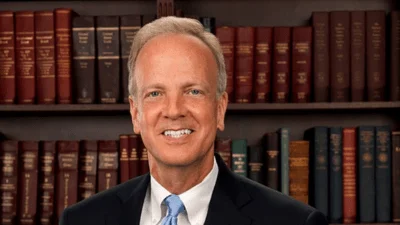WASHINGTON-House Committee on Oversight and Reform Ranking Member James Comer (R-Ky.) today delivered remarks on the House floor in support of the Postal Service Reform Act (H.R. 3076), bipartisan legislation he co-authored with Chairwoman Carolyn Maloney (D-N.Y.).
In his opening remarks, Ranking Member Comer touted the legislation’s provisions that bolster Postal Service-led operational reforms, implement Postmaster General DeJoy’s 10-year reform plan, provide key oversight tools to enhance transparency, and ensure the six-day delivery of mail and packages. Ranking Member Comer emphasized these reforms ensure the Postal Service continues as a financially sustainable and independently operated organization that Americans can continue to rely on.
Below are Ranking Member’s floor remarks as prepared for delivery.
Americans hold the United States Postal Service in extremely high regard.
And that’s for good reason-all rely on it for our paychecks, medications, news and magazines, and correspondence with loved ones.
And now more than ever Americans enjoy the conveniences of e-commerce no matter where they live in this great Nation.
The United States Postal Service is truly one of our prized national assets.
But, as we know, the Postal Service has faced financial trouble for many years.
Service delays stemming from an unreliable and outdated delivery network, a drastic historical decrease in mail revenue, and a sustained surge in labor-intensive packages have all contributed to the organization’s struggles.
The rise and dominance of the internet has completely changed the way people shop, pay bills, and generally communicate in ways that could not have even been envisioned in the 1970s when Congress established today’s independently operated Postal Service.
We need to face the music-the days of letters alone driving the Postal Service’s revenue are not coming back.
And with this national pandemic we have seen what happens when the Postal Service is stressed to its operational limits.
The dual challenges of workforce shortages and a surge in package volume across its delivery network plainly exposed the inability for the Postal Service to adapt to modern challenges.
I stand here today after more than a year of bipartisan work with my colleague Chairwoman Maloney to call for the House to pass the bipartisan Postal Service Reform Act of 2021.
This targeted bill addresses the immediate needs of the Postal Service to help it succeed in the 21st century.
H.R. 3076 bolsters Postal Service-led operational reforms that are already showing success with better revenue and delivery performance.
For example, the Postal Service saw one of the busiest holiday seasons ever this past year.
And even this current White House could not ignore the fact that nearly 99 percent of consumers received their packages on time or with minimal delays.
This was done under the leadership of Postmaster General DeJoy, and in the face of constant challenges brought about by the pandemic and the current political climate.
Coupled with the postmaster general’s ambitious and comprehensive 10-year reform plan are two legislative requests impacting the Postal Service’s ability to operate profitably in the years to come.
First, the well intentioned 2006 legislative requirement that the Postal Service prefund the retiree health benefits of all future potential costs has proven unworkable and counterproductive.
H.R. 3076 repeals this requirement while continuing to require annual payments for what is owed to postal retirees.
This helps alleviate immediate financial stresses while still protecting the workforce’s earned retirement health benefits.
Secondly, the Postmaster General has sought legislation to seamlessly transition the postal workforce into Medicare upon retirement, rather than continuing as the primary payer for retiree health benefits.
Congress has told the Postal Service it has to act like a business, and this is not something businesses do.
Businesses offer secondary coverage to wrap-around Medicare benefits, and that’s what Congress should allow the Postal Service to do as well.
This is sensible policy in keeping with the practices of private sector businesses.
Postal Service retirees have been paying into Medicare their entire careers.
And next to the federal government itself, the Postal Service is the largest contributor to the Medicare Trust Fund in the nation.
Together, these two legislative provisions-requested by Postmaster General DeJoy-are projected to help the Postal Service break even in the coming years.
However, I have made clear that Republicans need to see solutions that would also allow the Postal Service to fundamentally improve its business model.
Our reform bill is designed around the Postal Service’s current operational reform plans. Additionally, our bill makes sure Congress has key oversight tools.
For instance, our bill establishes a public-facing, online dashboard with full local mail delivery performance data.
This will provide necessary transparency into the on-time delivery of mail and equip every House member to conduct oversight of mail performance in their local communities.
Congress should not be caught off-guard as we were in early 2020 as the pandemic accelerated performance problems in real time.
My colleagues should also consider what this targeted reform bill does not do.
Our legislation does not include draconian cuts to service delivery-such as Post Office closures or decreasing delivery to residences.
Our bill keeps the needs of rural Postal Service customers front and center.
For instance, the bill codifies the six-day delivery of mail and packages-which provides assurance to businesses and rural communities alike.
And importantly, our reform bill does all of this without taking the easy approach of a bailout or increasing the budget-in fact the bill is projected to save over a billion dollars of taxpayer funds over the next decade.
Chairwoman Maloney and I have worked closely on receiving the input from the Postal Service and industry groups large and small.
And have come to an agreement that we believe will have a real impact.
I am proud of this productive, bipartisan work.







